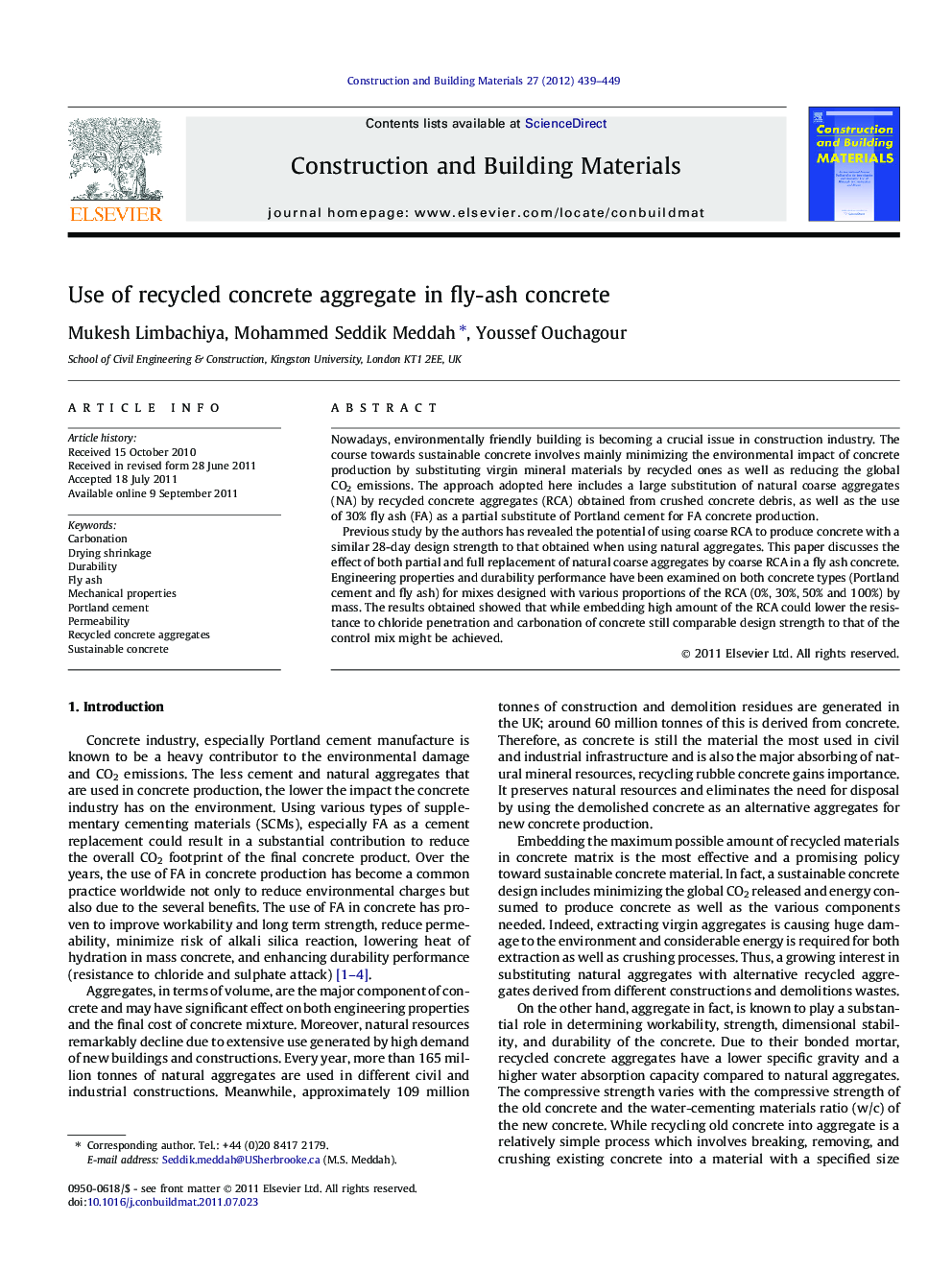| Article ID | Journal | Published Year | Pages | File Type |
|---|---|---|---|---|
| 259378 | Construction and Building Materials | 2012 | 11 Pages |
Nowadays, environmentally friendly building is becoming a crucial issue in construction industry. The course towards sustainable concrete involves mainly minimizing the environmental impact of concrete production by substituting virgin mineral materials by recycled ones as well as reducing the global CO2 emissions. The approach adopted here includes a large substitution of natural coarse aggregates (NA) by recycled concrete aggregates (RCA) obtained from crushed concrete debris, as well as the use of 30% fly ash (FA) as a partial substitute of Portland cement for FA concrete production.Previous study by the authors has revealed the potential of using coarse RCA to produce concrete with a similar 28-day design strength to that obtained when using natural aggregates. This paper discusses the effect of both partial and full replacement of natural coarse aggregates by coarse RCA in a fly ash concrete. Engineering properties and durability performance have been examined on both concrete types (Portland cement and fly ash) for mixes designed with various proportions of the RCA (0%, 30%, 50% and 100%) by mass. The results obtained showed that while embedding high amount of the RCA could lower the resistance to chloride penetration and carbonation of concrete still comparable design strength to that of the control mix might be achieved.
► This research investigates the use of RCA as substitute of NA in fly-ash concrete. ► RCA is shown to be an efficient alternative material to natural aggregates. ► 30% replacement of NA by the RCA has found to be the optimum replacement level. ► FA-concrete with 30% RCA has exhibited a quite similar performance to NA concrete. ► Using RCA in blended cement concrete is more efficient than in PC concrete.
